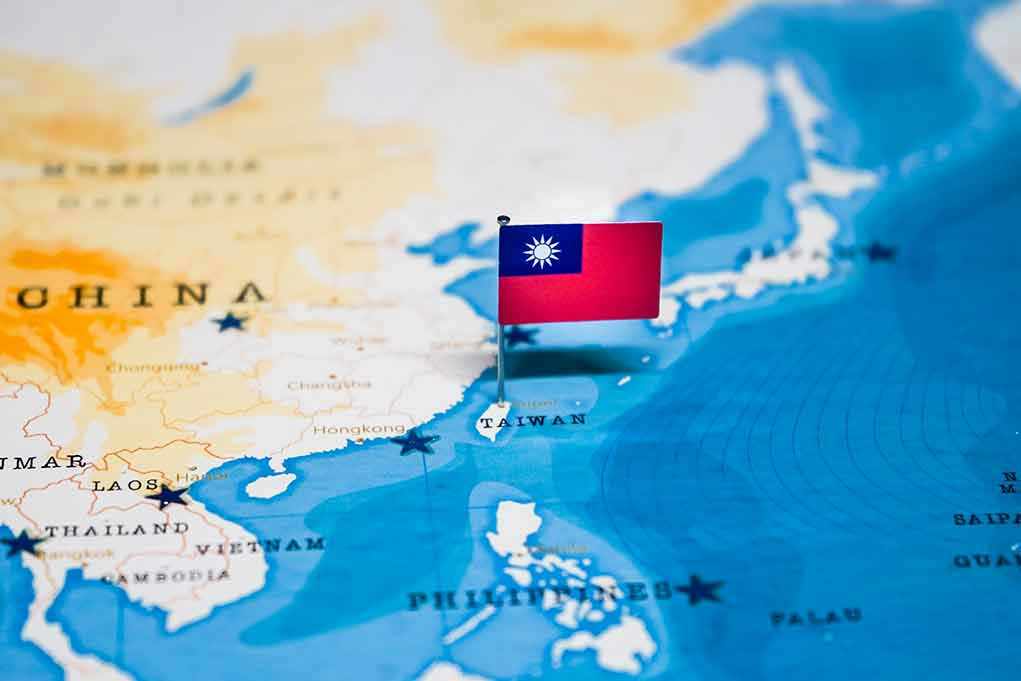
As China ramps up military pressure and economic warfare against Taiwan, the world teeters on the edge, wondering if 2025 will see the unthinkable—will Beijing finally make its move and plunge the globe into chaos over a single island democracy?
At a Glance
- China has intensified military drills and economic sanctions against Taiwan following the 2024 election of pro-independence President Lai Ching-te.
- The US and its Indo-Pacific allies are boosting military and diplomatic support for Taiwan, even as China’s power grows.
- Experts warn that increased Chinese military activity could be a dress rehearsal for invasion, with the risk of conflict now described as “imminent.”
- Disruption in the Taiwan Strait could shock global supply chains, especially in semiconductors, threatening the US economy and national security.
China Escalates Pressure on Taiwan—The World Holds Its Breath
Military posturing has moved beyond mere saber-rattling. In 2025, China’s People’s Liberation Army has conducted unprecedented exercises near Taiwanese territory, creating a fog of uncertainty—are these drills, or are they the opening moves of an invasion? Admiral Samuel Paparo of US Indo-Pacific Command warns that China is aggressively “stretching their legs” to hit their stated 2027 goal of military readiness for a Taiwan operation. US Secretary of Defense Pete Hegseth has gone even further, stating that a Chinese move on Taiwan “could be imminent,” citing a staggering 300% increase in Chinese military pressure.
Taiwan, for its part, isn’t sitting idle. After prosecuting a Chinese ship captain for sabotaging critical undersea cables—a textbook example of China’s so-called “gray zone” tactics—Taipei reinstated military tribunals for espionage. President Lai Ching-te has taken a defiant stance, labeling China a “foreign hostile force,” and vowing to defend Taiwan’s autonomy at all costs. These moves have only fueled Beijing’s fury. The Chinese Communist Party, led by Xi Jinping, has responded with sweeping new sanctions, suspending preferential tariffs on 134 Taiwanese products and threatening severe punishment for anyone advocating independence.
The US Response: Strategic Ambiguity Meets Hard Reality
For decades, the United States has walked a diplomatic tightrope—supporting Taiwan’s self-defense while refusing to formally recognize its sovereignty. Under President Trump, that support has become more muscular, with increased arms sales, joint exercises with regional allies like Japan and Australia, and blunt warnings to Beijing not to test American resolve. The stakes go far beyond geopolitics. Taiwan is the beating heart of the global semiconductor industry, and any disruption could cripple everything from smartphones to fighter jets. The US economy, already battered by years of reckless government spending and inflation, can’t afford another supply chain disaster triggered by a war in the Taiwan Strait.
American officials and defense analysts are clear-eyed: the risk of a catastrophic miscalculation is rising daily. Massive Chinese naval and air incursions into Taiwan’s Air Defense Identification Zone have become routine, blurring the line between bluster and genuine threat. Meanwhile, Beijing’s economic and cyber onslaughts target not just Taiwan, but any nation that dares to defy the Communist Party’s will. Lithuania learned this the hard way when China cut off trade after Vilnius opened a Taiwanese representative office.
Global Consequences: Why This Isn’t Just “Faraway Trouble”
The potential fallout from a conflict in the Taiwan Strait would be seismic. First, the world’s most advanced chips—produced by Taiwan’s TSMC—would vanish from the market overnight, sending shockwaves through the tech, automotive, and defense industries. A military clash could block one of the globe’s busiest shipping lanes, driving up prices on everything from electronics to automobiles and further punishing American consumers already squeezed by inflation.
Beyond the economics, the collapse of the status quo would embolden authoritarian regimes everywhere. If China can swallow a free, democratic Taiwan with impunity, what’s to stop Russia, Iran, or North Korea from following suit in their own regions? The US and its allies know what’s at stake: not just a distant island, but the rules that keep global order—rules that have already been shredded by years of leftist appeasement and toothless international “norms.”
Expert Warnings and the Path Ahead
Security experts and military leaders agree on one thing: the danger is real, and the window for peaceful solutions is closing fast. Some analysts argue that China prefers to squeeze Taiwan with economic and psychological warfare, hoping to force capitulation without firing a shot. Others see the escalating tempo of PLA operations as a sign that Xi Jinping is preparing for war, especially as the 2027 centennial of the People’s Liberation Army approaches.
Scholars warn that, with communication channels between Beijing and Taipei all but frozen, the risk of accidental escalation is higher than ever. Economic analysts add that the US push for semiconductor “sovereignty” by 2030 could further change the calculus, making Taiwan a target before America secures its own supply chains. One thing is certain: as the world’s authoritarians circle, America cannot afford weakness, dithering, or the kind of disastrous “strategic patience” that got us here in the first place. The time for clarity—and resolve—is now.
Sources:
Global Guardian: Will China Invade Taiwan?
Wikipedia: Cross-strait relations
Council on Foreign Relations: China-Taiwan Relations and US Policy
Atlantic Council: China’s Dress Rehearsals to Take Taiwan

